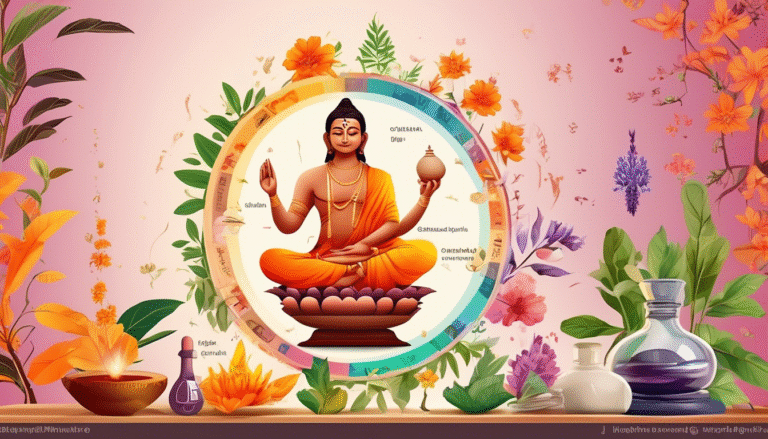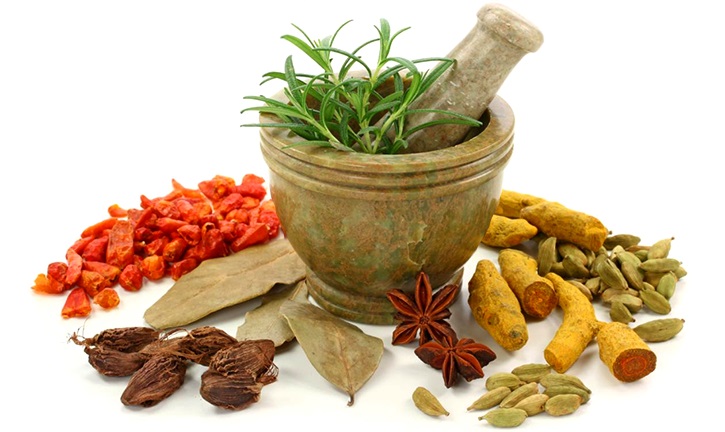Exploring Common Diseases Treated in Siddha Medicine: A Comprehensive Guide

Introduction to Siddha Medicine
Siddha Medicine is one of the oldest systems of traditional medicine that originated in South India. It is not just a form of treatment but encompasses a holistic approach to health and well-being. What sets Siddha apart is its unique understanding of the human body, mind, and spirit, which are believed to be interconnected. This ancient system places a strong emphasis on the balance of the body’s three humors: Vata (air), Pitta (fire), and Kapha (water).

Having delved into this fascinating realm, I have found that Siddha practitioners often conduct a thorough diagnosis, taking into account not just the physical symptoms but also the emotional and environmental factors affecting a person’s health. This comprehensive approach aims to treat the root cause of ailments rather than merely alleviating symptoms. As I explore the myriad benefits of Siddha medicine, I am continually amazed by its rich history and its adaptability to modern health challenges.
The knowledge passed down through generations is vast, encompassing various herbal remedies, dietary guidelines, and therapeutic practices. Whether one is dealing with chronic conditions or seeking preventive care, Siddha Medicine offers a treasure trove of insights and methods for achieving holistic wellness.
Overview of Siddha Medicine Principles
The principles of Siddha Medicine are deeply rooted in the philosophy of nature and the human body. Central to this system is the concept of “Siddhars”, ancient sages who developed these teachings. They emphasized the importance of achieving harmony within oneself and the environment. Siddha Medicine teaches that every person is unique, and therefore, treatments must be personalized to cater to individual needs.
A key tenet of Siddha Medicine is the interconnectedness of the mind, body, and spirit. This means that emotional disturbances can manifest as physical ailments, and vice versa. In my experience, this holistic view is essential in understanding the complexities of health. It encourages practitioners to consider lifestyle, diet, and emotional health when diagnosing and treating patients.
Moreover, Siddha Medicine strongly advocates for preventive care. The focus is on maintaining health through a balanced diet, regular exercise, and mindfulness practices. The idea is to empower individuals to take charge of their health. By understanding and adhering to these principles, we can cultivate a lifestyle that minimizes the risk of disease and promotes overall wellness.
Common Diseases Treated in Siddha Medicine
Siddha Medicine addresses a wide range of diseases, many of which are prevalent in today’s society. Some of the most common conditions treated include:
- Respiratory Disorders: Conditions such as asthma, bronchitis, and allergies are frequently managed through Siddha remedies. Herbal formulations and breathing exercises are often prescribed to alleviate symptoms and improve lung function.
- Digestive Issues: Siddha practitioners commonly treat ailments like irritable bowel syndrome, gastritis, and constipation. The focus is on restoring digestive health through natural remedies and dietary adjustments.
- Musculoskeletal Disorders: Arthritis, back pain, and joint pain are prevalent in many individuals. Siddha treatments often include herbal poultices, oil massages, and yoga to enhance mobility and reduce inflammation.
- Skin Conditions: Psoriasis, eczema, and acne are frequently addressed in Siddha medicine. Natural ointments and dietary changes are often recommended to treat these conditions.
- Stress and Anxiety: Mental health is a significant focus in Siddha. Techniques like meditation, yoga, and herbal concoctions are employed to manage stress and anxiety, promoting mental clarity and emotional stability.
Recognizing the effectiveness of Siddha for these ailments has led many to explore this ancient system as a viable alternative or complement to conventional medical treatments.
Siddha Approaches to Disease Management
The approach to disease management in Siddha Medicine is comprehensive and multifaceted. Initially, I found that diagnosis involves a meticulous examination of the individual’s health history, lifestyle, and emotional state. This thorough assessment allows practitioners to tailor a treatment plan that addresses the specific needs of the patient.
Siddha treatments often include a combination of herbal remedies, dietary modifications, and lifestyle changes. For instance, practitioners may prescribe specific herbs known for their therapeutic properties, alongside guidelines for a balanced diet that supports healing. The emphasis on natural ingredients aligns with my belief in the power of nature to restore health.
Furthermore, Siddha Medicine integrates physical therapies such as “Marmam” (pressure point therapy) and “Kutti” (panchakarma therapies) to enhance overall well-being. These techniques work by stimulating the body’s energy points, promoting circulation, and detoxifying the system. In my experience, this holistic approach not only alleviates symptoms but also empowers individuals to take an active role in their health journey.
Benefits of Siddha Medicine for Common Ailments
One of the significant benefits of Siddha Medicine is its focus on personalized treatment. Unlike one-size-fits-all approaches, Siddha practitioners consider the unique constitution of each individual. This tailored approach often leads to more effective outcomes and higher patient satisfaction.
Additionally, the natural remedies used in Siddha are generally well-tolerated and have fewer side effects compared to many conventional medications. Many patients report experiencing relief from their symptoms without the adverse effects commonly associated with pharmaceutical treatments. This aspect has encouraged me to advocate for the integration of natural therapies in modern healthcare.
Moreover, Siddha Medicine promotes a lifestyle of wellness rather than merely treating disease. The emphasis on preventive care, dietary management, and mental health is increasingly relevant in today’s fast-paced world. By adopting Siddha principles, individuals can cultivate resilience against various ailments, leading to improved overall health and enhanced quality of life.
Specific Diseases and Their Siddha Treatments
In the realm of Siddha Medicine, each disease has specific treatments based on the underlying imbalances in the body’s humors. Here are a few examples of common diseases and their corresponding Siddha treatments:
| Disease | Siddha Treatment | Key Ingredients |
|---|---|---|
| Asthma | Herbal concoctions and breathing exercises | Pippali, Vasaka, Honey |
| Irritable Bowel Syndrome | Dietary adjustments and herbal remedies | Triphala, Ginger |
| Arthritis | Oil massages and herbal poultices | Moringa, Turmeric |
| Psoriasis | Natural ointments and detoxification | Neem, Aloe Vera |
| Stress and Anxiety | Meditation practices and herbal teas | Ashwagandha, Brahmi |
Understanding these specific treatments has deepened my appreciation for Siddha Medicine’s nuanced approach. Each remedy is crafted to restore balance and support the body’s natural healing processes.
Evidence and Research Supporting Siddha Medicine
While Siddha Medicine has been practiced for centuries, the modern world often demands empirical evidence to validate its efficacy. I have encountered numerous studies that explore the benefits of Siddha treatments. For instance, research has shown that certain herbal remedies can effectively reduce inflammation, improve respiratory function, and alleviate digestive disorders.
Additionally, clinical trials are increasingly being conducted to examine the safety and effectiveness of Siddha treatments. These studies often highlight the importance of traditional knowledge in developing new therapeutic approaches. By integrating scientific research with ancient wisdom, we can foster a more holistic understanding of health.
Moreover, patient testimonials and case studies often provide compelling evidence of Siddha’s effectiveness. Many individuals have found significant relief from chronic conditions through Siddha treatments, which encourages further exploration into this ancient practice. The fusion of traditional and modern methodologies can pave the way for a more comprehensive healthcare system.
How to Choose a Siddha Practitioner
Choosing the right Siddha practitioner is crucial for a successful treatment experience. I recommend considering the following factors:
- Qualifications and Experience: Ensure that the practitioner is well-qualified and has extensive experience in Siddha Medicine. It’s beneficial to look for certifications or accreditations from recognized institutions.
- Consultation Approach: A good practitioner should take the time to understand your health history, lifestyle, and concerns. They should provide a comprehensive assessment and explain the treatment plan clearly.
- Patient Reviews: Reading testimonials or reviews from previous patients can offer insights into the practitioner’s effectiveness and approach. Personal recommendations can also be valuable.
- Comfort Level: It’s essential to feel comfortable with your practitioner. A strong practitioner-patient relationship fosters trust and enhances the overall treatment experience.
By taking these factors into account, you can find a Siddha practitioner who aligns with your health goals and provides the support you need on your wellness journey.
Integrating Siddha Medicine with Conventional Treatments
As I explore the landscape of healthcare, I recognize the growing trend of integrating Siddha Medicine with conventional treatments. This collaborative approach can provide a comprehensive strategy for managing health. Siddha can complement conventional medicine, especially in managing chronic diseases, enhancing the effectiveness of treatments, and reducing side effects.
For instance, patients undergoing treatment for chronic conditions like diabetes may benefit from Siddha dietary recommendations and herbal supplements alongside their prescribed medications. This synergy can improve overall health outcomes and quality of life.
Moreover, the holistic principles of Siddha Medicine can enhance mental well-being, which is often overlooked in conventional treatments. Practices such as meditation, yoga, and stress management techniques can support individuals dealing with anxiety or depression, providing them with tools to cope more effectively.
Ultimately, embracing a multidisciplinary approach fosters a more inclusive healthcare system that respects the value of both traditional and modern practices. This integration may lead to improved patient satisfaction and better health outcomes.
Conclusion: The Role of Siddha Medicine in Modern Healthcare
In conclusion, Siddha Medicine offers a unique, holistic approach to health that aligns well with the evolving landscape of modern healthcare. Its emphasis on personalized treatment, preventive care, and natural remedies resonates with many individuals seeking alternatives to conventional medicine.
As we navigate the complexities of health in today’s world, I believe it is crucial to recognize the significance of traditional systems like Siddha. They not only provide valuable insights into disease management but also empower individuals to take charge of their health.
By integrating Siddha Medicine with modern practices, we can cultivate a more comprehensive understanding of well-being, ultimately leading to healthier, more fulfilled lives. If you are interested in exploring Siddha Medicine further, I encourage you to seek guidance from qualified practitioners who can help you on your journey.
If you are looking for assistance with Siddha Medicine, services, or guidance, Don’t Guess Your Health – Get Expert Siddha Advice at Priya Siddha Clinic. You won’t be disappointed as you embark on your path towards holistic wellness!





